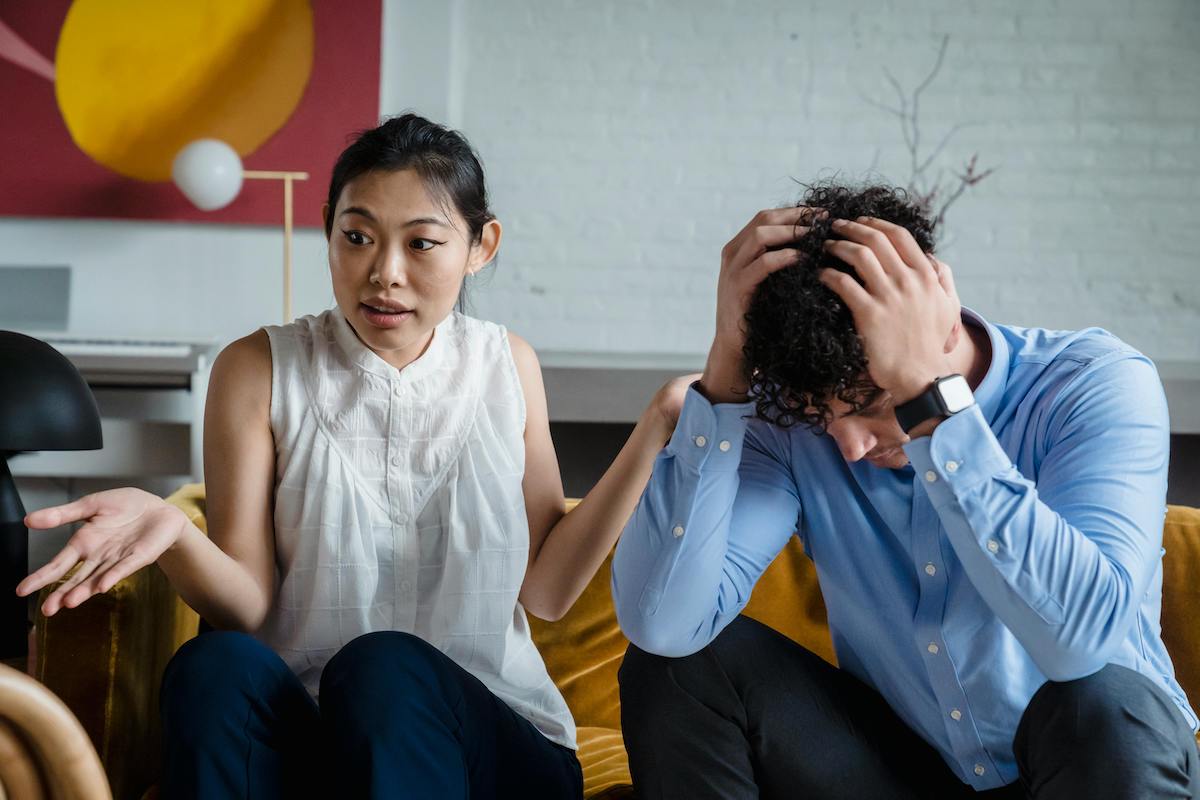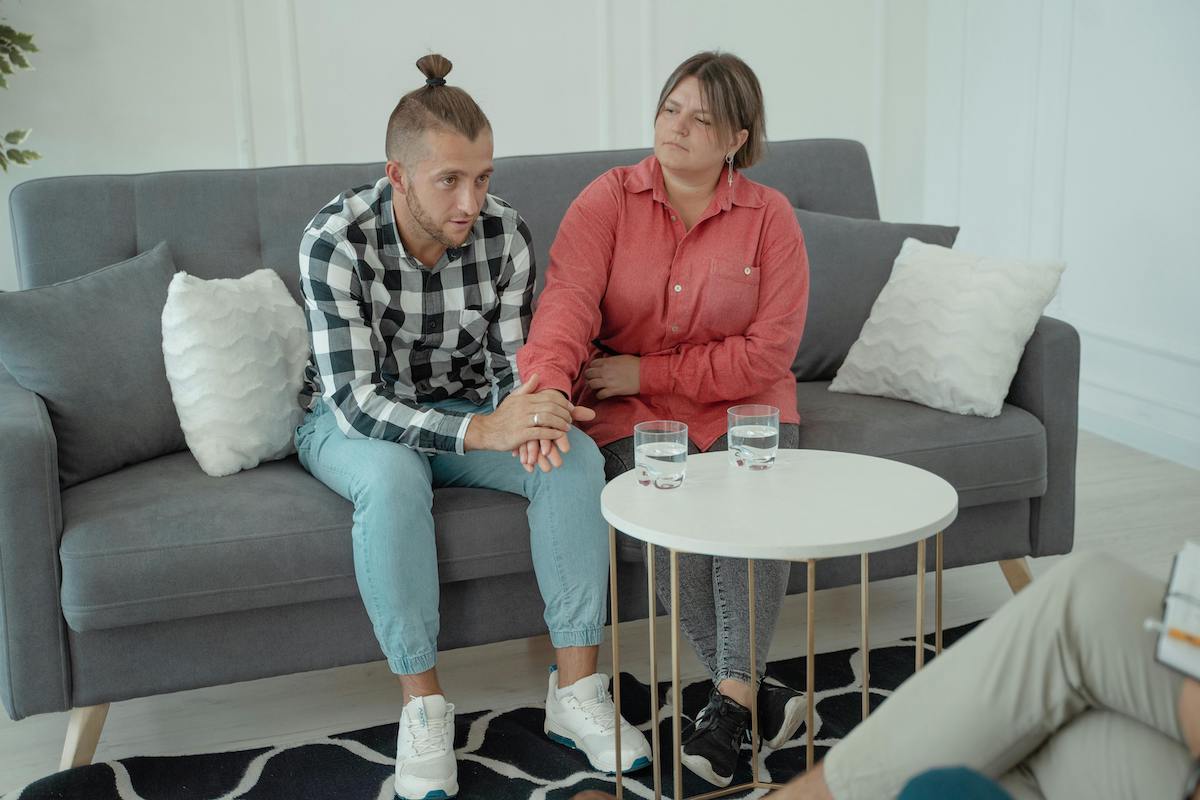Infidelity can shake the foundation of your world. Whether you’ve just found out or you’ve been living in the aftermath for weeks or months, the emotional toll is disorienting.
You might feel numb, flooded with anger, stuck in grief, or simply lost in questions you never thought you’d have to ask.
One of the most painful parts of infidelity isn’t just the betrayal itself—it’s the collapse of a story you thought was true. That’s not just heartbreak. That’s grief.
And amidst that pain, there’s often one question that keeps resurfacing…
Can a relationship survive after cheating?
In my work as a couples therapist, I’ve walked alongside many partners navigating this very question. It’s not simple. But it is possible.
This post will walk you through what the emotional aftermath of an affair really looks like, what research tells us about recovery, and—most importantly—what it takes to rebuild something real and lasting if you choose to stay.

Why Infidelity Feels Like the End
Infidelity doesn’t just break trust—it breaks your sense of reality.
You thought you knew where you stood. You believed in a shared version of your relationship.
When that foundation is shattered, it feels disorientating.
Many people experience what therapists recognise as a trauma response: intrusive thoughts, emotional numbing, hypervigilance, panic, sleep disturbance, or surges of rage.
This isn’t you being dramatic or overly sensitive. This is your nervous system doing its best to process a profound emotional injury.
We call this relationship grief. You’re not only grieving the betrayal. You’re grieving the version of your life, your partner, and your future that you believed in. And that grief is valid—even if your partner is remorseful and ready to repair.
In those early days, it can feel like everything is in question. That sense of internal chaos is common. And it’s survivable—with time, support, and the right tools.
How Many Couples Survive Infidelity?
It might surprise you to learn that many couples do stay together after infidelity. Research suggests that between 60% and 75% of couples choose to remain in the relationship.
Of course, this depends on the circumstances, and “surviving” isn’t the same as healing.
Some couples stay together physically, but never fully rebuild trust or emotional connection. They remain locked in patterns of resentment, silence, or shame. The relationship technically continues—but it’s no longer a source of safety or joy.
The real question isn’t how many couples stay together. I’m more interested in the quality of their relationship after choosing ot stay together.
In my experience, couples who can truly recover tend to have a few things in common:
- The affair has ended, with no lingering secrets or contact.
- The unfaithful partner takes full accountability, without minimising or deflecting.
- Both partners are willing to look at what preceded the betrayal, not to assign blame, but to understand the relational context.
- There’s a shared commitment to repair—and ideally, to therapy.
When those elements are present, the process of emotional recovery becomes not just possible, but deeply transformative.
Can a Relationship Really Survive Cheating?
Another common question I get is people asking me if a relationship can really survive infidelity, or they’ll ask, “How long does a marriage last after infidelity?” (assuming that it’s only possible to find a temporary fix).
Infidelity marks the end of the old relationship.
If a couple chooses to stay together, they aren’t returning to what was—they’re building something new. And often, that new relationship is built with more clarity, honesty, and emotional depth than before.
No, it won’t ever go back to what it was. But that’s not necessarily a bad thing.
Surviving infidelity doesn’t mean forgetting, excusing, or pretending it didn’t matter. It means doing the work to understand what happened, rebuilding trust brick by brick, and co-creating a stronger and more conscious relationship than the one that came before.
Healing is possible, but it requires more than forgiveness. It requires a rebuilding of the entire emotional foundation.

What Healing From Infidelity Looks Like
There’s no one-size-fits-all roadmap for how to get over infidelity.
In my experience, most couples who heal move through several key stages (which don’t always happen in order—and there’s plenty of overlap), and follow a recognisable rhythm.
1. Create Space
In the immediate aftermath, emotions are raw. You may feel pressure to make a decision—stay, go, forgive, or confront.
But right now, what you need most is space to breathe.
- Sleep separately if needed.
- Journal.
- Reach out to a trusted friend or therapist (Yes, you can do couples therapy alone)
- Focus on stabilising your nervous system before trying to find a resolution.
You don’t need to have all the answers today. Clarity is more important than urgency.
2. Begin Having Honest Conversations
At some point, the conversation must begin—not just about what happened, but why.
This is where repair starts, and it is essential that these involve complete honesty.
These conversations are uncomfortable. They require vulnerability, empathy, and the ability to hear pain without rushing to fix it or defend yourself. In my office, couples learn to expect me to focus using “I” language, staying present, and taking breaks when needed.
The goal isn’t immediate resolution in a single conversation. It’s laying the foundation for a more emotionally honest relationship.
3. Consider Therapy
Few couples navigate infidelity without outside support. Therapy provides a structured space for both partners to be heard, understood, and challenged in the service of growth.
Individual therapy helps each person explore their grief, guilt, or ambivalence.
Couples therapy facilitates safe dialogue, builds new relational skills, and restores connection.
Some evidence-based approaches I often use include:
- Gottman Method Therapy: Focuses on communication and emotional repair.
- Emotionally Focused Therapy (EFT): Helps couples rebuild emotional safety and secure attachment.
- Pragmatic/Experiential Therapy for Couples (PET-C): Addresses the neurobiological triggers behind conflict and teaches partners how to respond from a more grounded state.
- Imago Relationship Therapy: Encourages deep empathy and mutual understanding.

4. Rebuild Trust Through Small, Consistent Actions
If you are the one who has cheated on your partner, it’s important to understand that trust isn’t restored with apologies or declarations. It’s rebuilt in daily, often mundane moments:
Show up when you say you will.
Answering questions calmly, without defensiveness.
Be emotionally available to your partner, even when it’s uncomfortable..
Trust returns when behaviour changes—not just once, but consistently over time.
How Long Does It Take to Heal After Infidelity?
There’s no simple answer.
Healing from infidelity isn’t linear, and it rarely looks the same from one couple to the next.
For some couples, things begin to stabilise after a year. For others, it takes several years before trust and emotional connection feel secure again. The process often moves in waves: some weeks bring progress, others bring setbacks.
One thing that I’ve seen speed up the process is when couples are willing to enter into a Couples Intensive Programme.
In most cases, one partner may feel ready to move forward, while the other is still caught in grief or disbelief. That’s normal. And it doesn’t mean you’re incompatible—it means you’re healing at different speeds.
What helps is not perfect synchronicity, but mutual understanding:
- Acknowledge that you may be in different emotional places.
- Talk openly about triggers—and repetitive arguments—without judgment.
- Stay curious about each other’s inner world, even when it’s hard to hear.
Over time, the rawness softens, the questions become less charged, and the relationship begins to feel safe again.
How to Know if It’s Worth Staying
Not every relationship is meant to survive infidelity. And choosing to walk away can be just as courageous as choosing to stay.
So, how do you know if it’s worth rebuilding?
Here are some of the most beneficial questions I seek to answer in a couples therapy session:
- Are both of you genuinely invested in healing, not out of guilt or fear, but out of hope?
- Is the unfaithful partner taking full accountability, without minimising or shifting blame?
- Do you feel emotionally safe enough to be honest, even when uncomfortable?
- Can you imagine a future together that feels fulfilling, not just functional?
These aren’t questions to answer in one sitting. They’re questions to sit with over time. Often, the clarity comes not just from reflection, but from how you each show up in the aftermath, whether through consistency, empathy, or a willingness to grow.
Staying is only worth it if both people are willing to do the work.
Not to go back to what was, but to co-create something new together—something more aligned, honest, and resilient.
